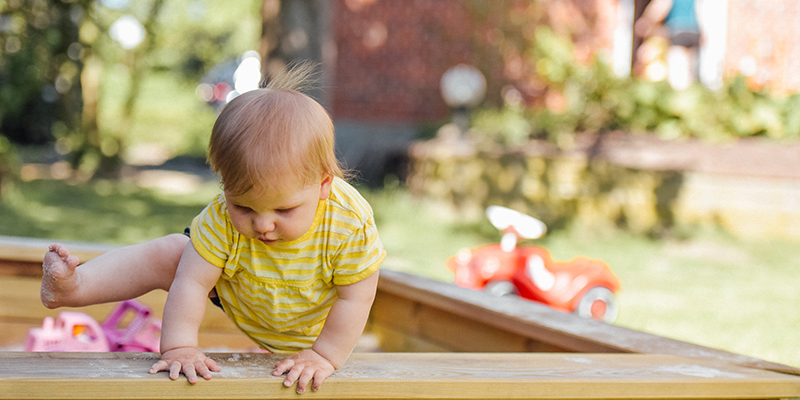Search

News & Events
Perron grants help give researchers wingsValuable support from the Stan Perron Charitable Foundation will enable The Kids Research Institute Australia researchers to commence projects on topics ranging from disability, mental health and lung disease to diabetes, Aboriginal leadership, and the development of child-focused pandemic policies.
Research
Perceived stress in mothers of children with and without islet and coeliac autoimmunity in the ENDIA studyWe aimed to assess perceived stress and influencing factors in mothers with children at risk of type 1 diabetes and coeliac disease who did, or did not, develop islet autoantibodies or coeliac autoantibodies by 4 years of age.
Research
Non-Suicidal Self-Injury and Outcome Expectancies: The Roles of Self-Efficacy, Cognitive Reappraisal, and Expressive SuppressionAccording to the Cognitive Emotional Model of Non-Suicidal Self-Injury (NSSI), this behavior is governed by a complex interplay of NSSI-related cognitions (i.e., a person's expected outcomes of self-injury and self-efficacy to resist NSSI) and emotion-regulatory strategies (i.e., cognitive reappraisal and expressive suppression). To empirically test this proposition, the current study examined the moderating roles of self-efficacy to resist NSSI, cognitive reappraisal, and expressive suppression in the relationships between outcome expectancies and NSSI frequency among university students.
Research
Characterizing the Nature of Alexithymia in Autistic Adults: Validation of the Perth Alexithymia QuestionnaireAlexithymia—a trait characterized by difficulties in emotion processing—is of high interest in the autism field. However, the lack of validated alexithymia measures for autistic individuals limits progress. This study aimed to address this gap by examining the psychometric properties of the Perth Alexithymia Questionnaire (PAQ) across autistic and non-autistic samples. Using the PAQ, we investigated how alexithymia manifests in autistic individuals and its links with poor mental health outcomes (anxiety).
Research
Thriving Under Threat: A Scoping Review of Human Thriving in Recurring Potentially Traumatic, Elevated Threat and High Stress Work EnvironmentsIn this scoping review, we explore the concept of human thriving in work populations that are repeatedly exposed to high stress, elevated threat, and potential trauma-professions such as first responders and front-line military personnel. The concept of thriving, defined as the joint experience of development and success, shares some similarities with other psychological concepts (e.g., resilience, posttraumatic growth, flourishing), but is distinct due to the consideration of physical wellbeing, and success (e.g., performance).
Research
Co-occurring Neurodevelopmental Conditions in Children: Advocating for Transdiagnostic Approach to AssessmentsApproximately 8% of all children experience developmental and mental health conditions. Similarities in characteristics across neurodevelopmental conditions-such as difficulties in communication and language, social interaction, motor coordination, attention, activity regulation, behavior, mood, and sleep-make it challenging to attribute these characteristics exclusively to specific diagnoses and assessments. The purpose of this study was to identify symptomatic domains across neurodevelopmental conditions in children and to explore dimension reduction for transdiagnostic assessment.
Research
“We Need Community-Centred, Strongly Ethical Genetic Research”: A Qualitative Investigation of Community Attitudes Toward Autism GeneticsAutism genetics has historically attracted a substantial proportion of autism research funding internationally. However, more recently, several controversies centered on ethical conduct and lack of community consultation have emerged. This has triggered Autistic-led protests for the functional and meaningful inclusion of Autistic voices in the research design.
Research
Loneliness and Emotional and Externalizing Problems in Early Adolescence: Moderating and Mediating Effects of Coping SkillsLoneliness is an unavoidable facet of human existence. When chronic and intense, adolescent loneliness is associated with maladjustment over time. A prospective multiple-cohort study examined the links between child-reported loneliness and coping skills and parent-rated child mental health in early adolescence, with a total of 266 students from 75 primary and 152 secondary schools.
Research
Randomised controlled trials of behavioural nudges delivered through text messages to increase influenza and COVID-19 vaccine uptake among pregnant women (EPIC study) in AustraliaInfluenza and COVID-19 vaccine uptake among pregnant women is sub-optimal. We assessed the effectiveness of a multi-component behavioural nudge intervention to improve COVID-19 and influenza vaccine uptake among pregnant women.
Research
Screening Measures of Perinatal Mental Health and Wellbeing in Fathers: A Scoping ReviewAccurately screening fathers for perinatal mental health problems requires well-validated screening instruments that assess the expression of paternal perinatal mental distress. This study aimed to identify and describe the psychometric properties of perinatal mental health screening instruments administered to paternal cohorts within the past two decades.
